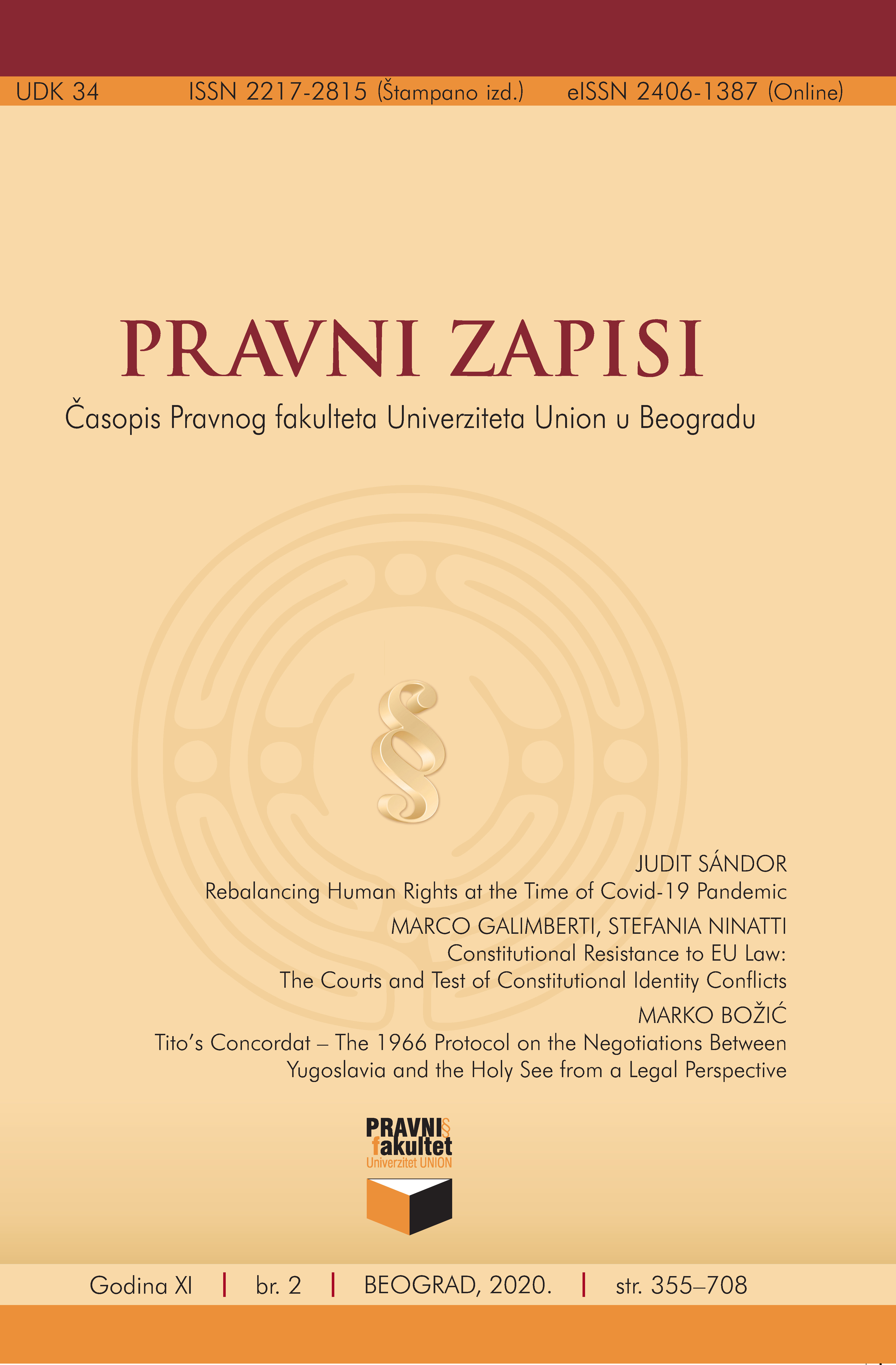U ime javnosti: legitimacija zastupnika kolektivnih interesa i širih interesa javnosti u upravnim stvarima
In the Name of the Public: Representatives of Collective and Wider Interest of the Public in Administrative Matters in Serbia
Author(s): Jelena JerinićSubject(s): Law, Constitution, Jurisprudence, Constitutional Law
Published by: Pravni fakultet Univerziteta Union
Keywords: administrative procedure; administrative dispute; party; public interest; collective interest; wider interest of the public; public concerned; civil society organizations; associations; standing
Summary/Abstract: Serbian Law on General Administrative Procedure (LGAP) opened a possibility for broadening the standing in administrative procedures and administrative disputes, by inclusion of subjects representing collective interests and interest of the wider public – primarily, citizen associations and similar organizations. However, by failing to regulate a series of concrete issues, the Law places the administration and the Administrative Court before a challenge, demanding from them an extensive interpretation of not only LGAP’s provisions, but other legislation already recognizing such organizations as aids in realization of the public interest. The author analyzes relevant legislation, as well as available administrative and court caselaw in search of these answers. The lack of explicit legal provisions could be balanced by a creative approach in practice, especially by the Administrative Court. Having in mind comparative solutions, the question arises whether it is necessary to regulate this category of potential parties separately or to link it more explicitly to the already existing notion of an interested party. Instead, completely new notions have been introduced – collective interests and the wider interests of the public – which are not or not consistently defined in Serbian law. The current, not so voluminous case law, shows that the administrative bodies need a more direct indication of the rules, i.e. a more explicit definitions of these terms. However, despite the restrictive legal framework, administrative bodies should be open to understanding the specific circumstances, i.e. the motivation that an organization has when it seeks standing. In the normative sphere, one of the solutions could be to envisage the analogous application of LGAP’s provisions on the interested party. Other solutions could be sought in explicitly mentioning them in the provisions on right to appeal. The current formulations of LGAP do not provide sufficient guidance to the administration and an extensive interpretation would be a great challenge for them. An active approach of the Administrative Court could show the way for the administration toward and effective application of these provisions of LGAP.
Journal: Pravni zapisi
- Issue Year: 2020
- Issue No: 2
- Page Range: 504-531
- Page Count: 28
- Language: Serbian

